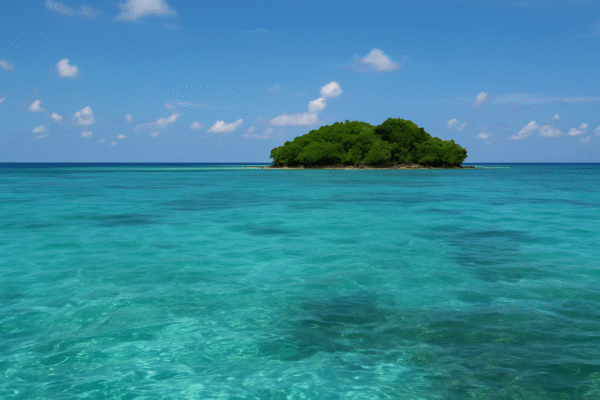Zanzibar, September 2025 – In a major step toward strengthening eco-tourism and protecting its unique marine ecosystems, the Revolutionary Government of Zanzibar has announced the introduction of new entry fees for several Marine Conservation and Protected Areas, effective September 1, 2025. This initiative is designed to balance tourism growth with environmental protection while also creating sustainable economic opportunities for local communities.
Why New Fees Are Being Introduced
The introduction of conservation fees underscores Zanzibar’s commitment to protecting its coral reefs, marine biodiversity, and coastal habitats, which are central to the islands’ eco-tourism identity. These fees will directly fund projects such as coral reef restoration, sea turtle protection, and enhanced marine surveillance to combat illegal fishing and environmental degradation. By reinvesting revenue into conservation, Zanzibar is ensuring that future generations can continue to enjoy its pristine waters and rich biodiversity.
Which Marine Areas Are Covered
The new charges apply to some of Zanzibar’s most celebrated marine destinations, including:
- Mnemba Island Conservation Area – famous for coral reefs and dolphin tours.
- Menai Bay Conservation Area – home to dolphins, whale sharks, and traditional dhow sailing.
- Chumbe Island Coral Park – an award-winning private marine reserve and eco-lodge.
- Changuu-Bawe Conservation Area – rich in snorkeling and historical sites.
- Pemba Channel Conservation Area – renowned for diving, deep-sea fishing, and rare marine life.
These locations represent the heart of Zanzibar’s marine tourism industry, attracting thousands of visitors annually for snorkeling, scuba diving, dolphin watching, and marine exploration.
The New Fee Structure
To ensure affordability while promoting conservation, Zanzibar has introduced a tiered fee system:
- East African citizens: TSh 5,000 per adult, TSh 2,500 per child (ages 5–15).
- Non-East African international visitors: $10 per adult, $5 per child.
- Non-East African residents in Tanzania: $5 per adult, $3 per child.
- Children under 5 years old: Free entry.
This inclusive structure ensures that both local families and international tourists can enjoy Zanzibar’s marine areas while contributing to their protection.
Strengthening Zanzibar’s Eco-Tourism Leadership
Over the last decade, Zanzibar has positioned itself as a leader in eco-tourism in the Indian Ocean region. From sustainable fishing initiatives to community-driven eco-lodges, the islands have consistently championed responsible travel. The introduction of entry fees builds on this reputation, aligning Zanzibar with global sustainable tourism practices.
As international travelers increasingly seek environmentally conscious destinations, Zanzibar’s proactive approach to conservation will further cement its status as a must-visit destination for eco-conscious explorers.
Experiences for Eco-Conscious Travelers
Marine protected areas in Zanzibar are teeming with natural wonders. Visitors can snorkel among vibrant coral gardens, swim with schools of tropical fish, or embark on dolphin-watching excursions in Menai Bay. Chumbe Island Coral Park offers guided eco-tours, marine education programs, and birdwatching opportunities in addition to its famous underwater world.
For those who prefer land-based experiences, guided community tours introduce travelers to traditional Swahili coastal culture, showcasing fishing villages, spice farming, and artisan crafts. These immersive activities highlight the connection between people, culture, and the natural environment.
Benefits for Local Communities
One of the most important goals of the new fee system is ensuring that revenue benefits local Zanzibari communities. Funds collected will support jobs for local guides, boat operators, conservation workers, and small eco-lodges. Additionally, eco-tourism projects funded by these fees will encourage the growth of sustainable small businesses, from organic farming cooperatives to artisan workshops.
This approach creates a cycle where tourism supports conservation and conservation supports communities, ensuring that the benefits of Zanzibar’s natural wealth are shared broadly across the islands.
A Sustainable Path Forward
The government has made it clear that the introduction of fees is only the beginning. Plans are underway to expand marine protected areas, strengthen waste management in coastal zones, and enhance infrastructure for sustainable tourism, including eco-lodges, green transport options, and renewable energy projects.
As global awareness of climate change and marine degradation grows, Zanzibar’s strategy provides a forward-thinking model of how small island destinations can protect their ecosystems while maintaining a thriving tourism economy.
Ensuring a Lasting Legacy
Zanzibar’s decision to charge entry fees for its Marine Conservation Areas reflects a long-term vision: one where tourism not only generates revenue but also plays a key role in environmental stewardship. By funding conservation, supporting communities, and creating unique eco-friendly experiences, Zanzibar is ensuring its tourism industry remains resilient and future-proof.
For travelers, these fees provide more than just access—they are a direct investment in protecting the natural beauty they come to enjoy. Whether diving in Pemba’s turquoise waters, snorkeling at Mnemba’s reefs, or sailing on a traditional dhow in Menai Bay, visitors become active partners in safeguarding Zanzibar’s marine treasures.
Conclusion
With the new entry charges in place, Zanzibar is setting an example of how eco-tourism can drive both conservation and economic development. The policy strengthens marine protection, ensures community benefits, and positions the islands as a global leader in sustainable travel.
For eco-conscious travelers, Zanzibar now offers not only stunning seascapes and vibrant culture but also the reassurance that their visit directly supports the protection of one of the world’s most extraordinary marine environments.
For more travel news like this, keep reading Global Travel Wire

















